Flipping a massive tire or busting out a huge PR on your squat feels amazing. For a lot of lifters, those sensations of being untouchable — of being better than we were yesterday — are why we spend so many hours under heavy barbells. Those kinds of highs can last for hours, and can give much-needed boosts in confidence.
And now, science is saying that rushes of confidence rushes can really impact your self-image and even your fitness itself — well, sort of.
Editor’s note: This article is an op-ed. The views expressed herein and in the video are the author’s and don’t necessarily reflect the views of BarBend. Claims, assertions, opinions, and quotes have been sourced exclusively by the author.
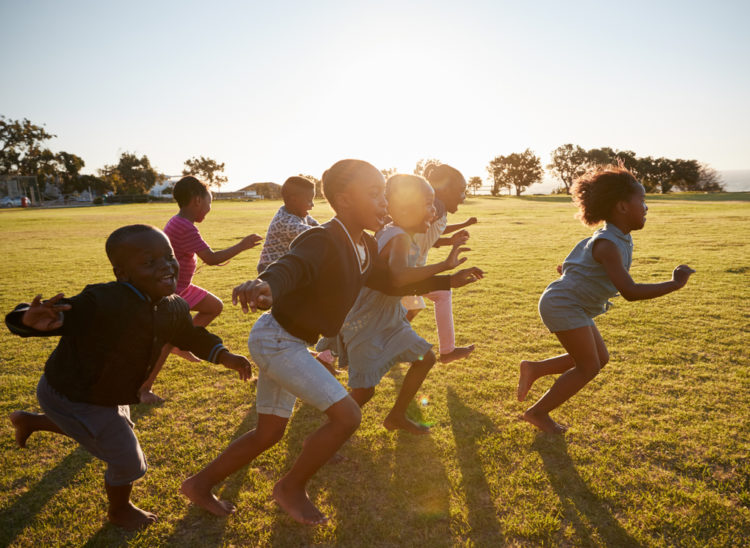
The Study
A new study published by the International Journal of Environmental Research and Public Health suggests that self-image is more closely tied to your perception of your fitness level, rather than being tied to your actual, measured fitness level.(1)
To determine the relationship between body dissatisfaction and perceptions of physical fitness in adolescents, twenty-eight young girls of color (specifically, black and Latina girls) from four Miami-Dade County after school programs were asked to complete a battery of fitness assessments, a survey about their self-image, and a questionnaire about their perceived levels of fitness. The fitness assessments included measures for aerobic fitness, flexibility, and lower body power.
Across the proverbial board, black children who felt like they excelled in strength, agility, flexibility, and lower body power experienced lower levels of body dissatisfaction (regardless of their measured performance). Latina children experienced similar relationships between greater perceived levels of fitness and greater self-image. (Interestingly, the more lower body power Latina girls felt like they had, the lower their self-image became.)
For the girls surveyed in this study, the authors suggested embracing physical fitness programs that encourage exercise efficacy and joy rather than simply telling children what they’re good at and what they’re bad at. Especially given that girls of color have fewer visible role models in the lifting world than their white peers, this study highlights just how important it is that physical education provides positive representations of women of color and body diversity.
[Related: 3 Tactical Ways to Have More Fun With Your Workouts]
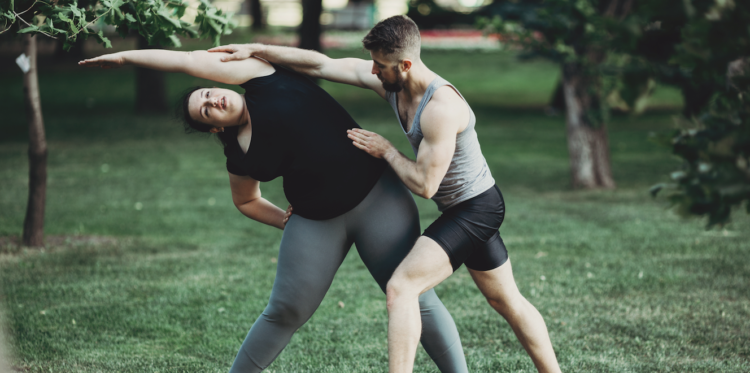
Putting This In Context
Sure, this study was focused on young girls. But, studies confirm that for adults, too, your perception of your abilities is as or more important to your self-image as what your body can physically do.
For example, a 2014 study published in the Spanish journal Nutricion Hospitalaria analyzed the self-perception of fitness among nearly 500 men (with an average age of 29).(2) The study concluded that participants with lower levels of perceived fitness, regardless of their measured fitness level, were more likely to develop cardiovascular disease.
Similarly, a 2017 study published in the Journal of Strength and Conditioning Research analyzed the self-perception and fitness of previously sedentary women ranging in age from 20-65 years old.(3) The women who originally thought of themselves as physically active were more likely to remain consistent with their new programs and improve cardiovascular fitness than those who originally rated their fitness levels as low.
So what does all this mean? The tl;dr is:
your beliefs about your body may be more important to your mental health, self-image, and workout consistency than your measured fitness level.
These beliefs are, of course, shaped by every ad we see, every casual interaction we have in life, every moment we step into a gym, every time a personal trainer assumes that people (especially women) want to lose body fat as their primary fitness goal.
All of this profoundly shapes our experiences of fitness, and our self-image. But that can be difficult to navigate in a world of fitness that assumes that all bodies should look a certain way and be able to do certain things.
“Coaches are often far too quick to jump to conclusions,” Cara Brennan writes for BarBend about assumptions of what women in a gym want with their bodies. “I will never assume a woman coming to me to train wants to lose weight. In fact, often female clients say they want to lose weight, but really they just want to feel happy in their bodies and they think weight-loss is necessary for that. It might be. But it might not.”
[Related: 3 Tips to Help Coaches Be More Body Positive With Their Clients]
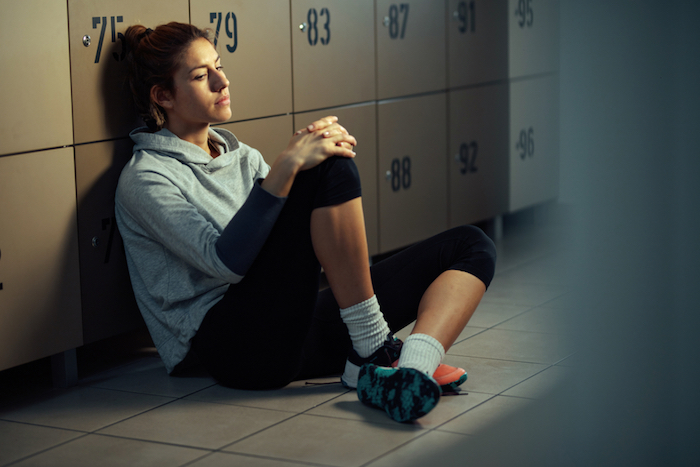
Improving Your Self-Image
So what’s a gym-goer who wants a healthy self-image to do? Start by blocking out the noise created by other people and social structures. It’s easier said than done, to be sure: this kind of noise about whose bodies are important are pervasive, and they are often matters of life or death. So it’s one thing to say, block out the noise. It’s very much a different thing to do it. Here’s how you can start.
1. Flex Your Self-Image Muscles
It can start small. Find one thing you love about your body, even if it seems really minor or silly. Focus on that one thing while you’re at the gym. Not the parts of you that you like less, or the parts of the person lifting next to you that you admire and wish your body had. Just focus on that one thing, almost like a meditation. Try to add a new thing you love about your body every couple weeks or so. It’s always going to be a living, breathing process.
2. Check The Facts
While you’re focusing on that great thing about your body, keep track of your lifting numbers and your mile times over the course of a few months. Try not to focus on fluctuations between days: sometimes you’re going to lift worse on a Thursday than you did on a Tuesday simply because you didn’t get enough sleep in between, and that’s more than okay. When you keep your lifting records and look back over time, focus on the overall changes and what you’re getting better at in the gym. Your lifting or endurance numbers, no one else’s.
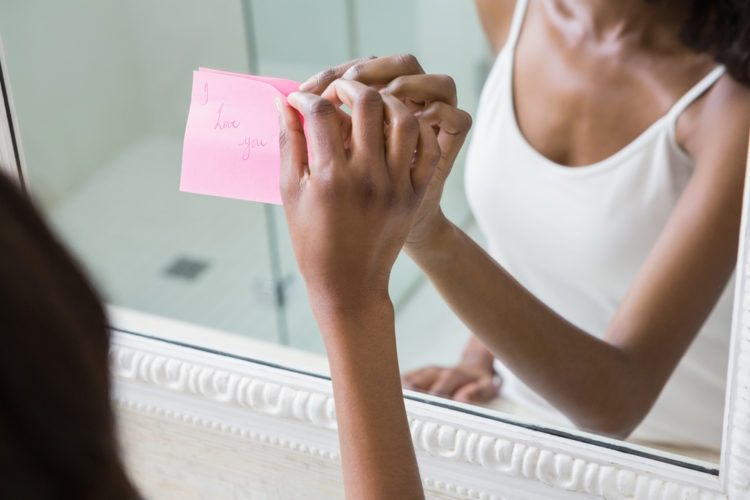
3. Keep Your Eyes To Yourself
Pursuing those PRs is still great for your self-image. Doing something better than you did last week is (aka, physically improving your fitness level) is also likely to increase your self-perception of your fitness level. But there’s a trap in there, too: you might keep improving, and that’s awesome! But if the guy next to you is also improving, and you start comparing your lifts to his… well, you might rate your fitness as lower than it actually is. And let in a whole lot of negative self-image and body dissatisfaction in the process.
So learn to detect the difference between watching someone’s lifts because they inspire you versus watching someone because you’re comparing yourself in a way that hurts you. It’s great to have goals: but keep track of the way watching other people (either at your gym or on Instagram) makes you feel. If you’re learning from someone and using that to get pumped up and challenge yourself, that’s great! But it’s a subtly different feeling to watch someone and work harder because their body, their lifts, make you feel crappy about yourself. And if it’s making you feel crappy, try to keep your eyes to yourself: no need to cause yourself emotional pain. Go back to step one: that one thing you love about your body. Try to fuel your motivation from within, and your workouts and mental health will both thank you.
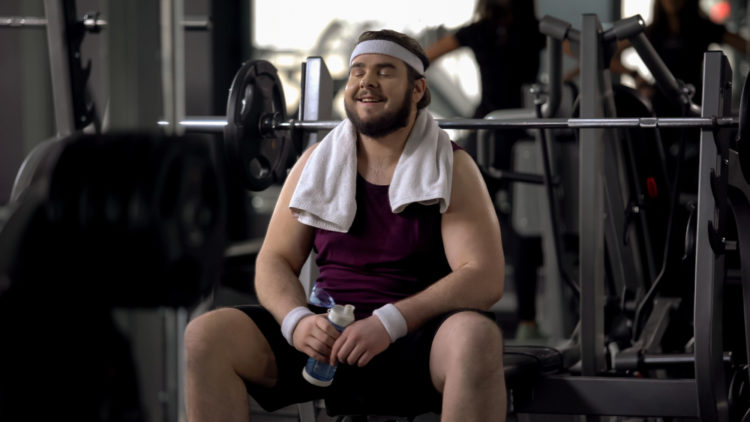
The Takeaway
You’re probably already much better than you think. So take that self-love and that notebook to the gym: unfortunately, sometimes the world’s noise gets so loud we have to re-train ourselves to be confident in our abilities and our bodies. But that’s okay: training is what we do.
Because as elite CrossFit athlete Elisabeth Akinwale has told BarBend, your ideal body is up to you. “It’s anything you want to be! That’s sexy. Just go with that.”
References
1. Flanagan EW, et al. Perception of Physical Fitness and Exercise Self-Efficacy and Its Contribution to the Relationship between Body Dissatisfaction and Physical Fitness in Female Minority Children. Int J Environ Res Public Health. 2018 Jun 6;15(6).
2. Fonseca-Camacho DF, et al. [A better self-perception of physical fitness is associated with lower prevalence of metabolic syndrome and its components among university students]. Nutr Hosp. 2014 Dec 17;31(3):1254-63.
3. Aasa U, et al. Correspondence Between Physical Self-Concept and Participation in, and Fitness Change After, Biweekly Body Conditioning Classes in Sedentary Women. J Strength Cond Res. 2017 Feb;31(2):451-461.